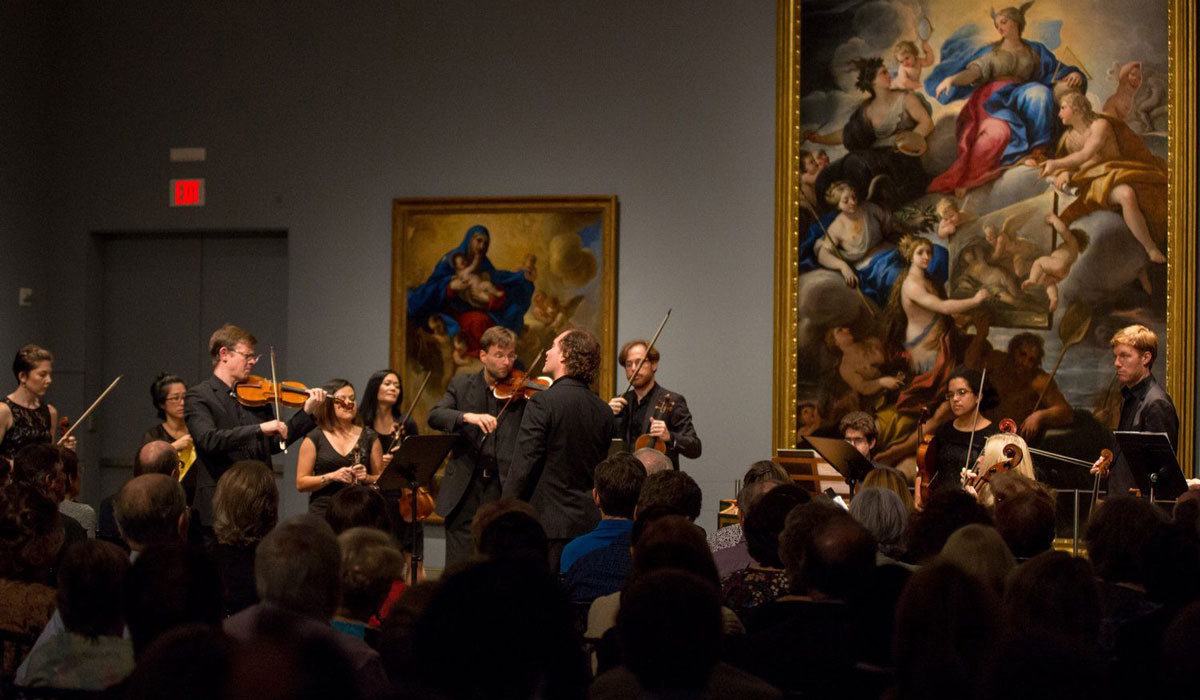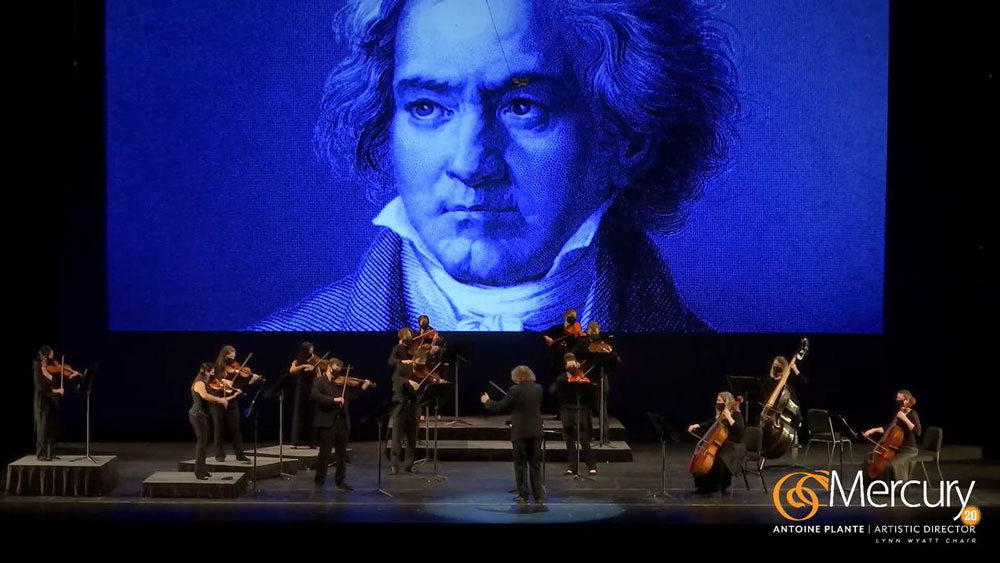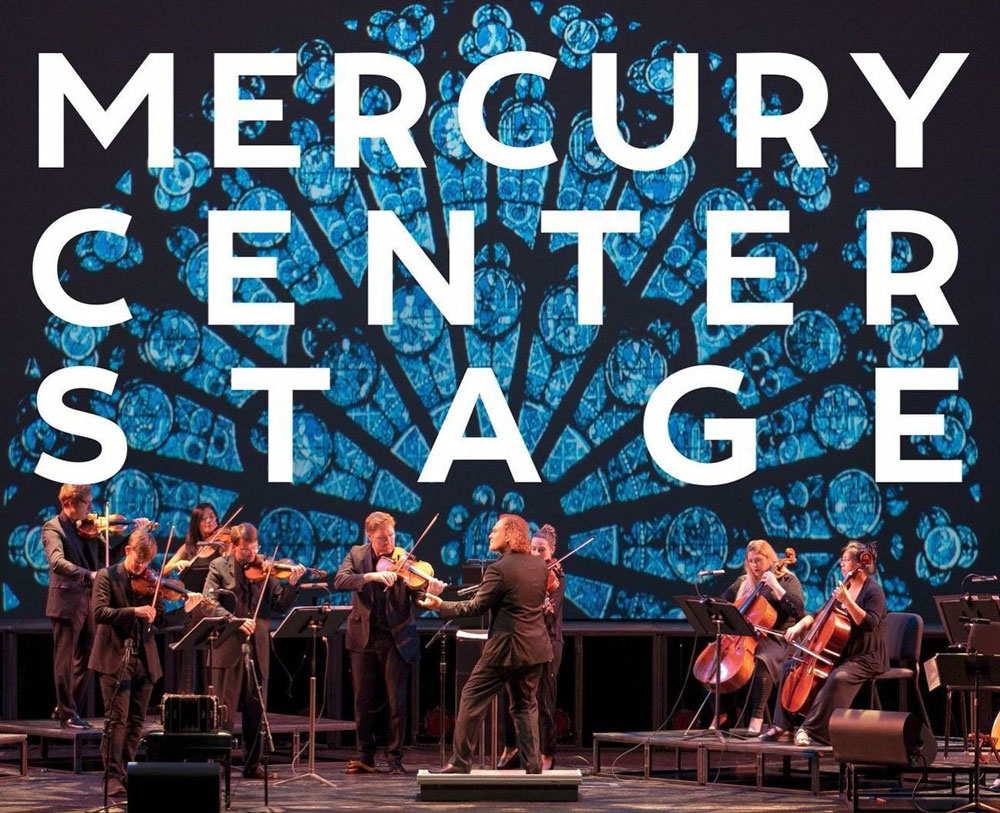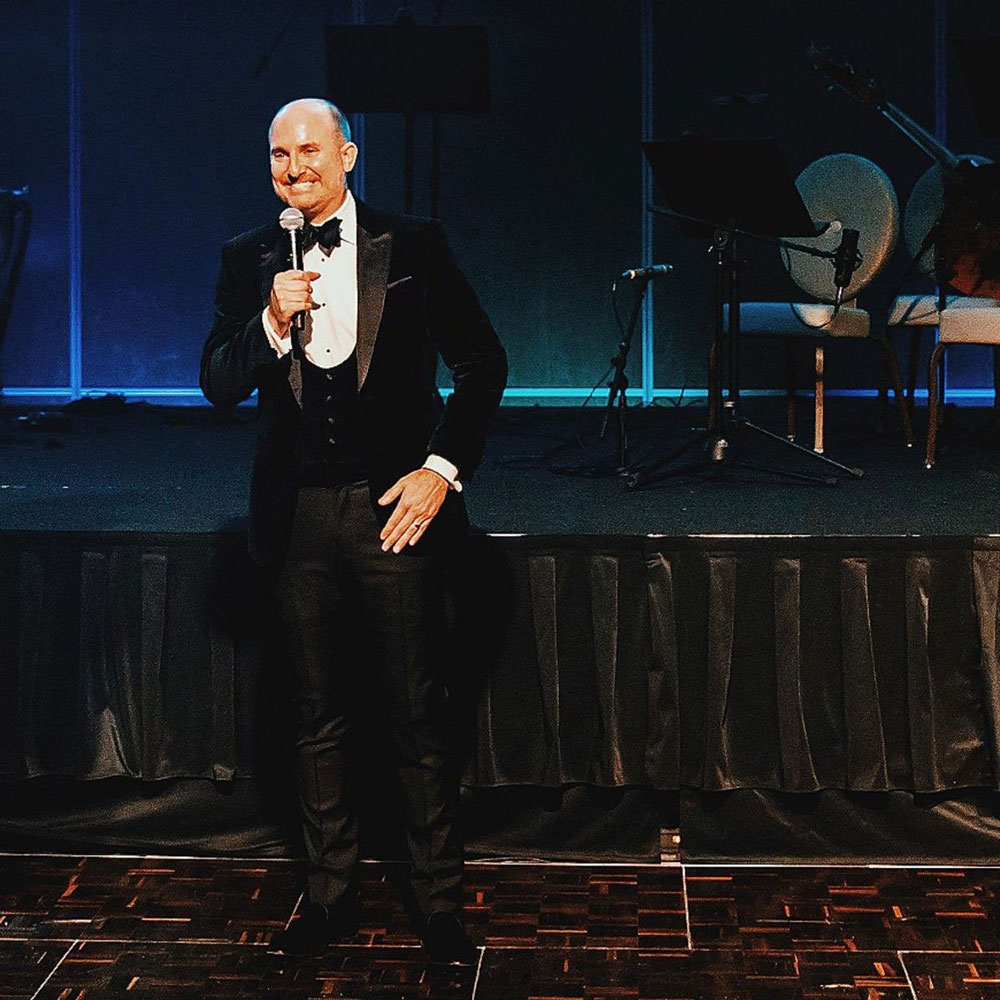
Brian Ritter ’99, a former history and political science double major at Gettysburg College, has been leading and redefining the Mercury Chamber Orchestra (Mercury) since his arrival as Executive Director in 2013. In his role, Ritter is charged with advancing the mission and vision of the organization, even as that means navigating through the disruption and hardships of a global pandemic.
Through Ritter’s steadfast leadership, Mercury is breaking conventional barriers of orchestra performance and bringing music to the ears, minds, and hearts of audiences who need it most—both within and beyond the Houston area.
A passion for music blooms
Music has always occupied a special place in Ritter’s life. Growing up, his parents listened to The Beatles, The Rolling Stones, and The Moody Blues, while his grandparents preferred Big Band Jazz, Broadway, and Classical music. Ritter was so influenced by his family’s love for music, in fact, that he started playing the saxophone in fourth grade.
Upon arriving at Gettysburg College, Ritter immediately joined the Bullets Marching Band, but it wasn’t until his sophomore year that he was named the band’s drum major—a position that allowed Ritter to partner with his future mentor, retired Sunderman Conservatory of Music Prof. Buzz Jones.
“Gettysburg has certainly prepared me a lot in decision-making and choosing a career path,” said Ritter, who shared a story of a time during his undergraduate experience at Gettysburg when he was torn between studying law and pursuing a career in the music industry. Ritter credits a conversation he had with Jones, where his uncertainty faded away and he came to realize that he could pursue a variety of professional opportunities, whether they were behind the scenes at a live stage performance or developing and managing an orchestra—and anything in between.
“Dr. Jones definitely gave me a nudge and great encouragement,” Ritter joked. “The conversation with him was a big revelation as it opened this world of new possibilities for me to use my leadership skills and love of music to pursue a career in arts management.”

Redefining the Mercury’s mission
For much of the orchestra’s history, Mercury was focusing on Baroque music and performing in an intimate environment with small ensembles. Ritter discovered Mercury during a pivotal time when its Board of Directors was considering a new strategic plan. The plan would reimagine how the orchestra and its music could inspire audiences for decades to come. Upon hearing the strategic plan, Ritter was immediately drawn to the management and leadership of the orchestra.
“That was the first time Mercury redefined itself, by moving from focusing on one particular niche of music to expanding its repertoire into more classical and romantic periods, where we began to play Mozart symphonies and Beethoven symphonies that required more musicians to join,” Ritter recalled. “I was attracted to Mercury because it was an organization thinking creatively about the future. It was a young organization as well, and so it wasn't necessarily confined to the norms, structures, and traditions of the past.”
The second time that Mercury redefined itself was in early March 2020, during the beginning stages of the surge of COVID-19 within the United States. He and his team managed to uphold their mission of celebrating the power of music through “teaching, sharing, and performing”—finding outlets for musicians to perform music, while cultivating new possibilities for audiences to reconnect to it. And for the first time in his 20-year career, Ritter had to cancel a concert. “It was a very interesting and intriguing new challenge,” Ritter shared.

“There were maybe two occasions where Mercury postponed a concert, but never before had we canceled a concert. So, when the pandemic hit, it was a big deal. It dawned on me that ‘Woah, this is scary, this is different.’ But I was not alone. My team sat down and we mapped out new ways to continue carrying out our mission,” he remembered.
“This is where mission was crucial. We managed to identify guidelines for us. We had to remember our mission here, and we had to deliver our mission no matter what happened,” said Ritter, who was recently appointed to the Sunderman Conservatory Oversight Board this past year. “Of course, we respect the health and safety of everyone in the organization and those we serve. We have listened to community leaders, the health experts, and watched what other peers are doing and the decisions they are making, specifically how they might be informative to us and how we might think differently.”
Offering solace in orchestral music
Shortly after the quarantine order, Mercury premiered its first virtual series, Songs of Comfort, inspired by Yo-Yo Ma. This was the beginning of their innovative virtual series, in which they started to produce more socially distant ensemble music that would utilize technology for creative shows, experimenting with new ways to continue implementing the mission, thus bringing solace and relief, albeit temporary, to the audience. A prime example is the nostalgic arrangement of cellist Courtenay Vanper Pereira, a sentimental tribute to Charlie Chaplin's poignant song “Smile” from Modern Times (Charlie Chaplin, 1936). The performance reminded audiences to keep smiling despite the turbulent and emotionally exhausting journey that they had been on since the onset of the pandemic.

This unprecedented time also gave way for Ritter’s orchestra to fit in projects that they would have otherwise been delayed, such as their weekly podcast Mercury Center Stage, in which Ritter hosts personal conversations with Mercury musicians and supporters about their backgrounds, Mercury’s history, and upcoming concert plans. Through adversity, Ritter sparked true innovation by experimenting and designing alternative listening experiences, while maintaining authentic connections with their loyal listeners.
“The podcast idea stemmed from what I remembered the audiences telling me over the years: ‘We’d love to know the musicians and their inspiration better.’ I had been thinking about that for years and, now, as we are thrust into this unprecedented period, I realized it would be the perfect opportunity to launch the project. Something about this challenging time gives, for me personally, more space to contemplate what’s important, and to allow things that aren’t important to recede to the background,” Ritter concluded. “The core idea of the organization has always been, even before and during the pandemic, for Mercury to be designed for everybody to feel welcome, and for the orchestra itself to be accessible to everyone.”
For more information about the Mercury Chamber Orchestra and its 20th anniversary season, visit www.mercuryhouston.org. Learn how you could pursue your passion at the Sunderman Conservatory of Music.
By Boba (Ngoc) Pham ’21
Photos courtesy of Mercury Chamber Orchestra/BEND Productions
Posted: 11/17/20